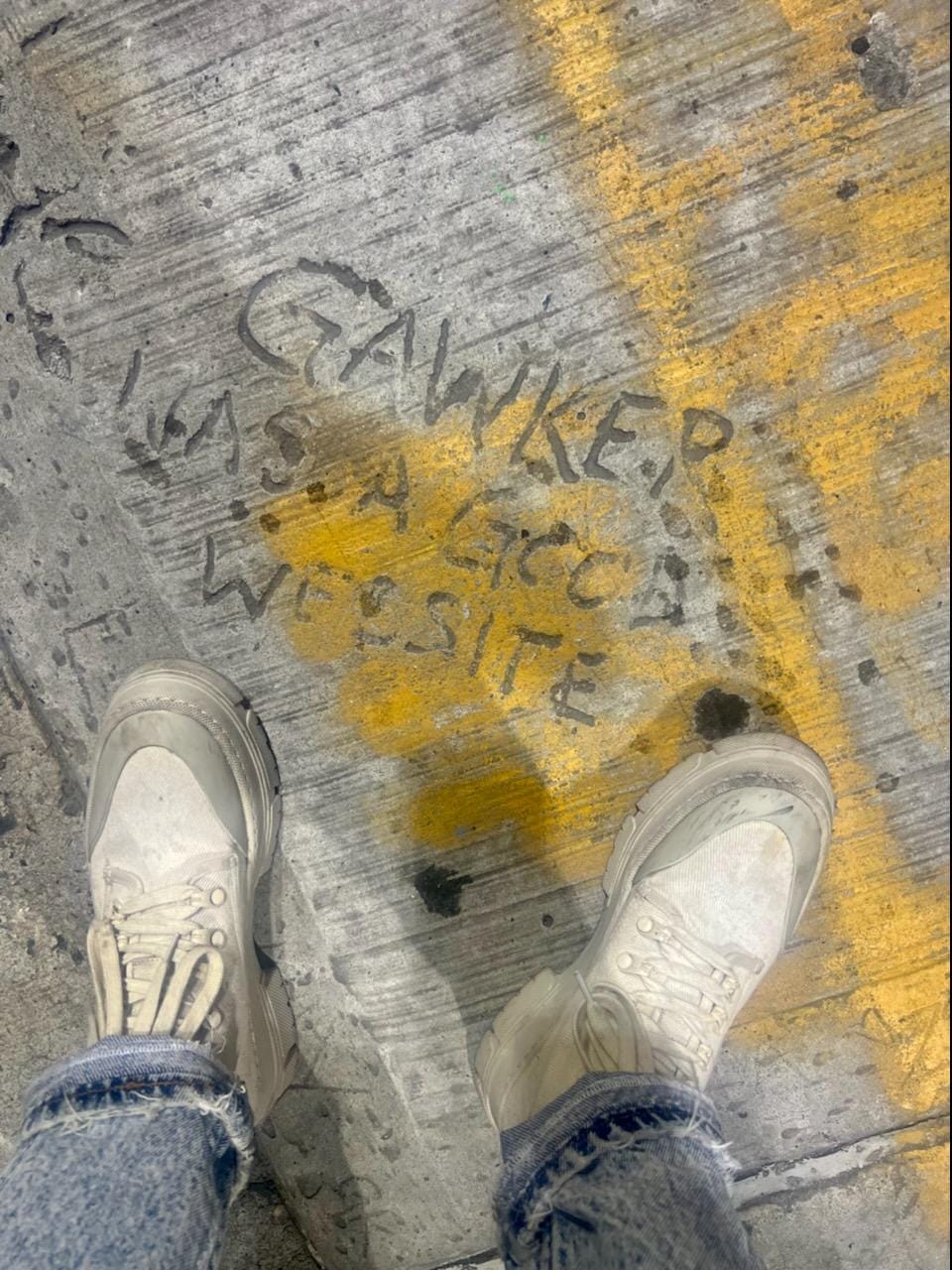New Gawker Was Also A Good Website
Blogging was never supposed to be a business, it was supposed to be fun
It’s Friday, it’s February, and it’s another issue of Down the Pipes, the semi-personal newsletter delivered to you inbox weekly. Access to paid content is available to my earliest subscribers (who are all comped forever, thank you for your early support), my friends (which is a broad definition and could merely mean “person I tweeted with once”), and anyone else willing to pay for full access. If you fall into none of these buckets, subscribe for the free tier and send me an email, that’ll put you in the friend bucket fairly quickly.
Media, if you didn’t know, is just the pluralized form of “medium.” A medium is just the technical material that brings an idea to life. Charcoal is a medium. So is television and radio. Magazines, books, films, all different media, created by all different kinds of people. Last week I wrote about how social media was finally turning into Societal Media, and the thrust here is the same: Media is not led by a singular voice, but a cacophony of voices.
So when people refer to “the media” like it’s some monolith, I get defensive. Sure, it’s a small world that’s traditionally been gatekept to shit at the highest echelons, but unlike other industries, media often does the messy work of progress in full view of an often antagonistic public. It may be a megalith, but only because thousands of individual voices are lifted up through it.
Me Too didn’t hit media first and hardest because media is more cretin-soaked than any other male-dominated industry, it landed in media first because it becomes incredibly hard to claim journalistic integrity when you’re ignoring the dark truths that afflict your own industry, company, or org structure. Media had the means to do something direct and publicly about shitty men in power, imagine for a second if financial institutions had such commitment to transparency and equality.
Gawker, in its original incarnation, understood & weaponized this imbalance of power. Though in those days, the ivory towers of Conde Nast, Hearst, Disney, the Times, NBCUni and News Corp were not willing to self-examine their own systems of oppression and abuse, so it was on Gawker and bloggers like them to start surfacing that sordid stuff for the rest of us to get outraged over.
Some of our targets were entirely warranted and well ahead of their time. They called out, in no short order, Donald Trump, Harvey Weinstein, Bill Cosby, Louis CK, Jeffrey Epstein, Brett Farve, Mel Gibson, and Shia LaBeouf, in most instances months or years before the rest of “the media” picked up on it.
But the charge was not “do deep hitting journalism against the most shitty media powerhouses on earth,” the charge was simply: Blog.
Write about the stuff that everyone is thinking but nobody is saying. Make it sharp, funny, sardonic, insightful, and snarky. It was—at times—reckless. “It’s the conversation journalists have at the bar after they file their story,” as we were repeatedly told by the godfather of blogs as a business, Nick Denton.
Write in a way that makes it sound like a friend gossiping with another friend, share the truth as you understand it, honestly and openly. Forget what you know about the AP Style Guide and blog as if someone just gave you a 60mg XR Adderall and held a gun to your head (we never actually did this, but we might as well have).
When given the space to write in their own voice about the subjects that matter most to them, bloggers can do amazing things. They’ve forced politicians to resign, they’ve exposed sex cults, and they can even still effectively police the media ecosystem, as my former team at Futurism has demonstrated this week with their coverage of CNET’s flagrant AI usage.
This is not the kind of work that these publications typically do in between pithy blog posts and news round ups; as I said it is not their primary mandate. But in my experience, it’s easiest to produce those massive, ecosystem shuddering stories with a team of empowered bloggers that knows how and when to relentlessly blog, and the only way to get good at that is to blog, relentlessly.
Gawker 2.0 blogged, relentlessly.
Launched just shy of two years ago inside Bryan Goldberg’s Frankenstein Media Company, the editorial of Gawker 2.0 was as good as a resurrected website could be. It was an impossible task to relaunch something that meant so much to so many people without attracting some amount of unfair comparison to “what it was,” but if it bothered the New Gawker bloggers they didn’t show it. They just kept on blogging in their own style, distinctly more literary and essay-based than the original, but a new flavor that reflected the common wisdom that “you couldn’t do Gawker 1.0 today.”




